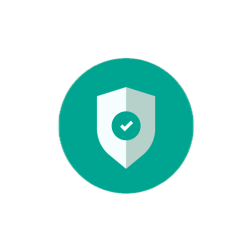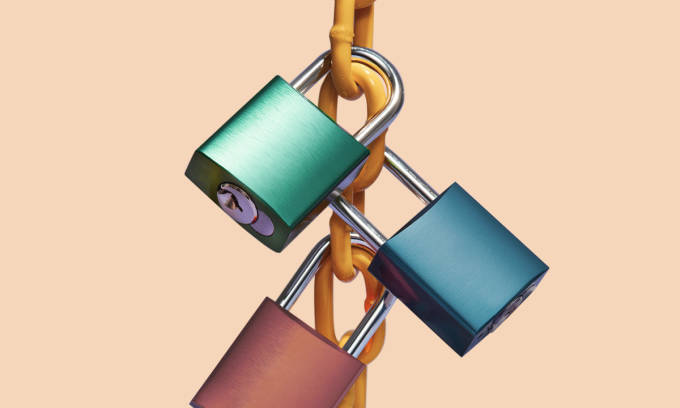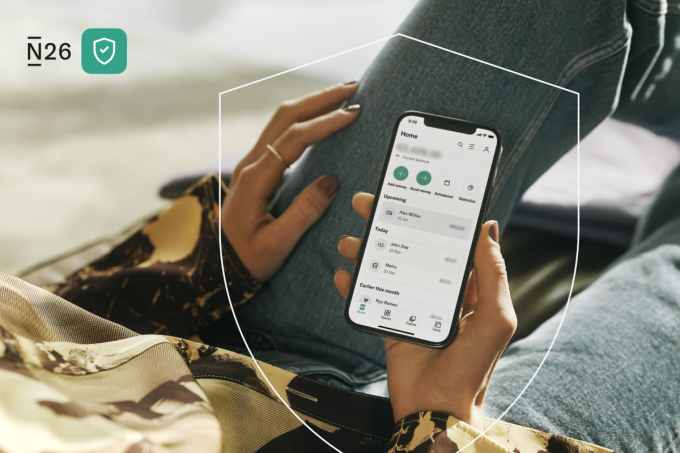
Online scams: How to spot internet fraud and stay safe
Online scams seem to be everywhere—luckily, there are ways to dodge them. Learn how to avoid internet fraud and keep yourself safe with this handy guide.
4 min read
Social media platforms, private messaging services, online shops: With so many of us spending almost every day on the internet—and sharing our personal information—it’s no surprise that criminals try their luck online, too.
That’s why it’s so important to learn to recognize the typical online scams that trick people into handing over sensitive data. Don’t worry too much, though! This article will guide you through everything you need to know so you can shop and chat safely.
What is internet fraud?
The term “internet fraud” refers to any crime that takes place online, such as on websites and mobile apps. Generally, it’s much easier for scammers to take advantage of unsuspecting people online than in the real world. Fraudulent online shops mimicking well-known websites can look deceptively real, and users will enter their data, completely unaware of the scam. Plus, online scammers know that people are overloaded with information and don’t always thoroughly check links in emails or messages. After using these kinds of tricks to hack smartphones or computers, criminals steal even more sensitive information like bank account details or passwords.
Fortunately, there are ways to protect yourself. The first step is becoming more aware of common scam techniques, such as phishing and pharming. It also helps to understand the tactics used by criminals, especially social engineering, and the common online scams you might encounter. Now, let’s have a look at some practical tips!
Security at N26

How to avoid online scams
The good news is: You don’t need expensive software or other gadgets to detect online fraud. Simply taking your time to look carefully at any deals and bonuses, websites, or new contacts will already go a long way. Consider the following tips:
- Do your research on people or organizations who contact you. Whether it’s a new contact on Instagram, a recruiter on LinkedIn, or a charity representative asking for donations, it’s important to double-check the identity of anyone who contacts you and not click on links they might have included in their messages.
- Always keep your personal information secure. You should be extremely cautious anytime someone asks for payment details or your personal information, especially when it’s over the phone, email, or SMS. Ask yourself if the person or company really needs this information. Banks, for instance, would never ask you to share your PIN, even if your bank account is allegedly at risk.
- Be careful when shopping online. Fraudulent online shops have been on the rise for years. Check the website’s business information or imprint if the shop is unfamiliar to you, and research the vendor before clicking on that buy button. Also make sure the payment services are secure, and read through our tips on how to make safe online purchases.
- Check your social media privacy settings. You’re an easier target for criminals if your personal information is clearly visible online, so check your privacy settings and restrict which details are shared publicly. Also check out our tips on how to protect your digital identity.
- Be skeptical of deals and offers online. This includes job offers, discount codes, travel deals, free giveaways, or abnormally large discounts on expensive items. As a rule of thumb, if an offer sounds too good to be true, it usually is!
- Protect yourself when selling things online. You might assume that selling things on online marketplaces such as eBay Kleinanzeigen is safe from fraud. Unfortunately, even here, criminals have come up with strategies to steal your money. Make sure to only use secure payment methods, and never click on links from interested buyers.
How to report online scams
If you spot internet fraud or you’re concerned you may already be a victim, report it as soon as possible. Here’s a list of fraud-reporting authorities and websites:
- Germany: www.polizei.de
- Austria: https://bundeskriminalamt.at/mdst/cc.aspx or https://www.ombudsstelle.at/
- UK: www.actionfraud.police.uk
- Spain: Policia Nacional or Guardia Civil
- Italy: https://www.commissariatodips.it
- France: https://www.internet-signalement.gouv.fr
If a genuine organization is impersonated in any way, for example in job scams, notify the organization directly so they can warn other customers.
Security at N26
At N26, we take security seriously. That’s why we employ security measures such as biometric authentication, 3D Secure technology, and discreet mode.
On top of that, you can find a number of helpful security guides on our blog. Learn what secure mobile banking entails, how to create a strong password, or what to consider when banking online.
And always feel free to reach out to our dedicated Customer Support team if you have questions! Simply open your N26 app and tap on the question mark icon or visit our Support center.
The bank account that gives you more control

Find similar stories
By N26
Love your bank
How N26 will contact you — and how we won’t
8 min read
5 min read
Related posts
These might also interest youTips for secure online banking
Online banking has transformed our finances. Here's how to stay secure while managing your money.
Deposit protection scheme: why your money is protected
Looking for reassurance that your money is protected? Deposit protection schemes help secure the money in your bank account.


